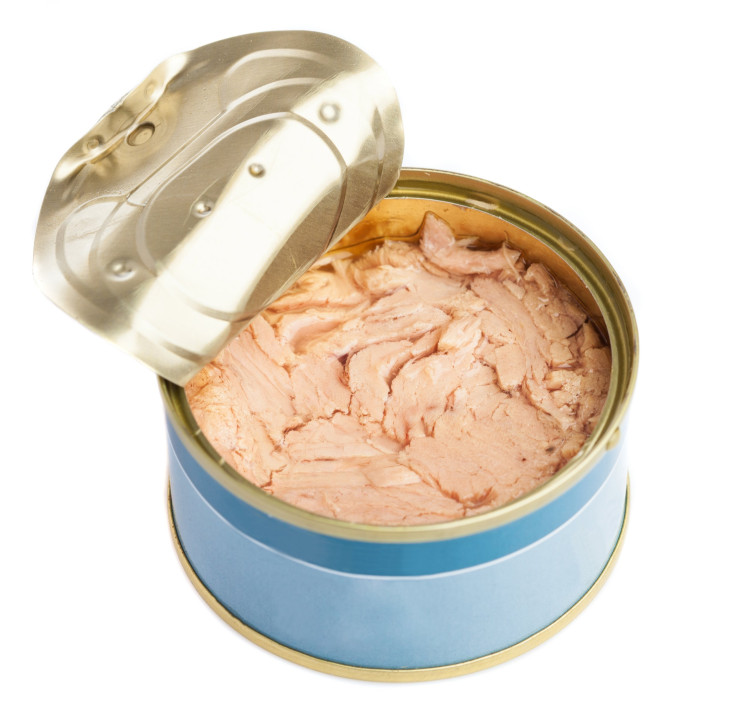The ‘Christmas Tinner’ Is Your Holiday Turkey, Mince Pies, And Pudding... All In 1 Can

Video game producer Game Retail Ltd. (GAME) has come up with a way for video gamers to avoid missing a beat during the holidays when they want to minimize all distractions from their screens, even eating. And so, probably half-jokingly and half-seriously, GAME has created the "Christmas Tinner," your holiday dinner layered by course in a can.
“The GAME Christmas Tinner is the ultimate innovation for gamers across the nation who can’t tear themselves away from their new consoles and games on Christmas Day,” GAME writes on its website, where it is selling the Christmas Tinner at a low price. The innards of the Christmas Tinner include, in layers, scrambled egg and bacon, two mince pies, turkey and potatoes, gravy, cranberry sauce, brussel sprouts with stuffing, roast carrots and parsnips, and finally, as the bottom layer – Christmas pudding for dessert.
So…What’s Wrong With Canned Meals?
There’s nothing wrong with having a canned meal — if that’s your slice of pie. Whether or not the Christmas Tinner is a joke, it’s been receiving plenty of Internet and media attention. And there are probably people out there who would eat such a thing, as canned meals are nothing new. Previously, there was the canned whole chicken, for example, as well as the canned cheeseburger. Even canned bread exists. Other canned foods might be a staple for some people, such as canned meat, Spam, or canned tuna. Of course, Campbell soups can be a quick, and relatively wholesome, meal.
By now, many people are aware of the “bad things” about canned foods, primarily the high levels of added salt and sugar; some products keep the food preserved in oil rather than water. Then there’s Bisphenol A (BPA), which has racked up a reputation for being a chemical that disrupts the endocrine, which monitors the secretion of hormones into the bloodstream to control physiology and behavior. In 2008, the debate over BPA made headlines when it was shown to leak out of plastic when it was heated. BPA has been used as an ingredient in plastics and resins that coat metal cans. In the past several years, BPA has been linked to reproductive disorders, diabetes, and cardiovascular disease, and many canned foods now boast “BPA-free.”
However, The Washington Post notes that BPA still largely exists in various objects, including compact discs, receipts from ATM machines and medical devices. “The effect [of BPA] is not necessarily toxic in the traditional sense,” Sarah Vogel, director of the health program at the Environmental Defense Fund, told The Post. But it can disrupt the endocrine system and confuse cellular signals. The National Institutes of Health (NIH) launched a five-year research program with the Food and Drug Administration (FDA) and the Centers for Disease Control and Prevention (CDC) to study effects of BPA exposure, and it has largely been removed from food products in recent years.
Another Side To The Can
Some canned foods, however, are considered a decent alternative to fresh foods, especially if time or money is a concern — if you find the ones with reduced salt or featuring the American Heart Association (AHA) symbol. Canned foods last longer while preserving many of the original fiber and nutrients of vegetables as well. A study completed in 1997 at the University of Illinois Department of Food Science and Human Nutrition found that canned fruits and vegetables provide just as much dietary fiber and vitamins as some fresh fruits and veggies. Canned pumpkin, for example, offers a lot more Vitamin A than fresh pumpkin does, and canned pumpkin overall isn’t fatty or unhealthy in and of itself.
Instead of Spam, which contains 33 percent of daily sodium intake, turn instead to canned tuna or white chicken meat — and make sure it’s packed in water rather than oil. Plenty of canned soups have low sodium options now, even though they still contain a relatively high amount of salt. But if you don't have time to sit down for a traditional holiday meal, perhaps you need to purchase the Christmas Tinner in advance.



























